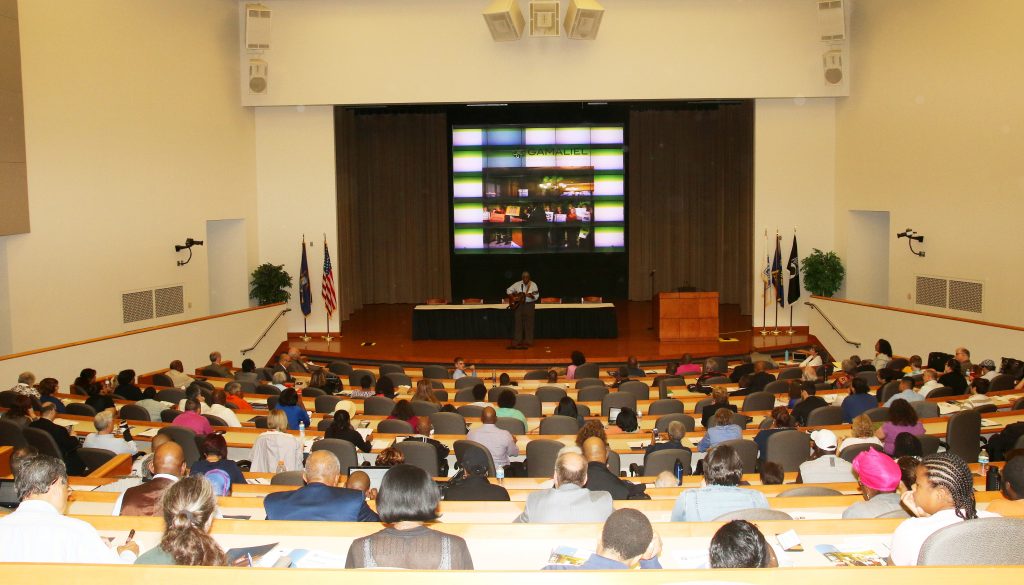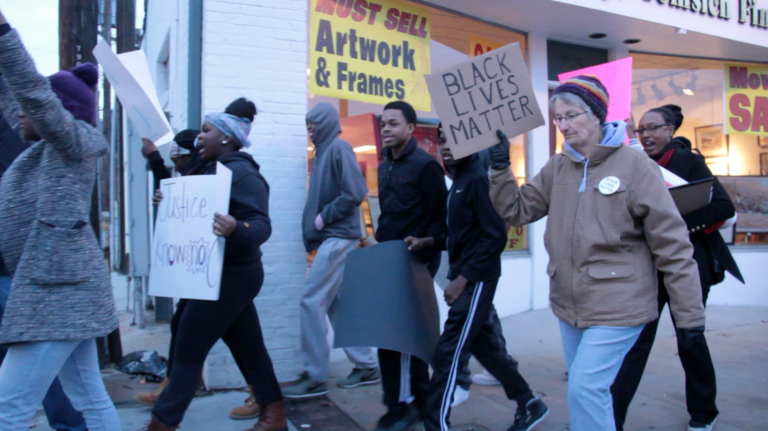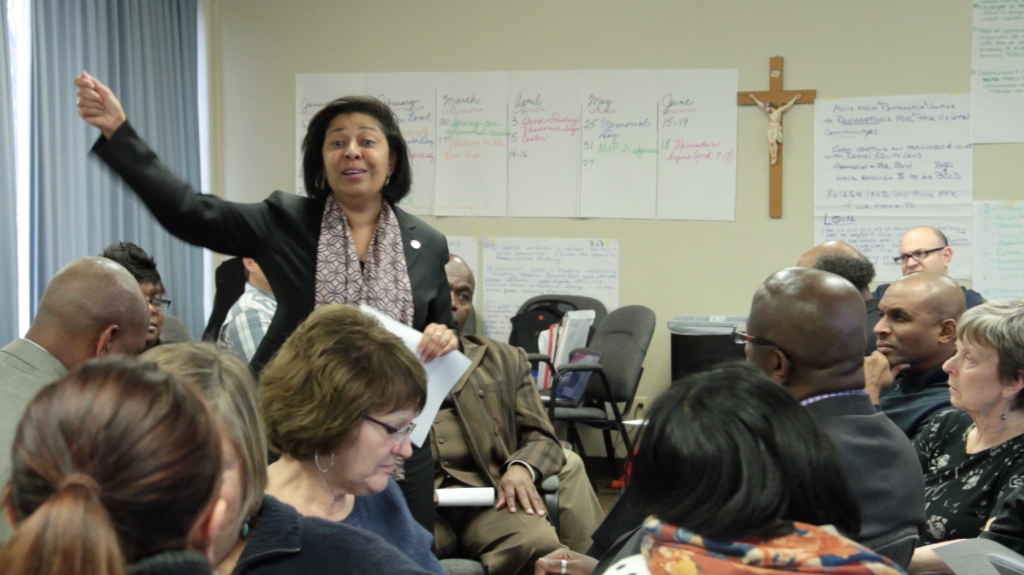Race and power institute

You can be part of the historic launch of the Gamaliel Race and Power Institute when you join us at Race and Power Summit 4 in Baltimore this November!
If you’ve followed Gamaliel’s work over the years, you know that creating structural racial equity has been the lens through which we have increasingly shaped our internal decision-making structures, our organizing and issue campaign work, and our relationships both inside and outside our Network.
We are clear that racism exists at both the micro and macro levels of our society and culture. We also know, that as an institution charged by its diverse membership with dismantling racism, we must not only focus on changing the hearts and minds of people. We must also focus on creating solid public policy and practice that permeates institutions and systems—and that requires building multi-dimensional power. Further, we must move beyond a simplistic binary paradigm of race relations that promotes a “divide and conquer” strategy among people of color, discourages the perception of common interests, and totally ignores the presence in this country of multiple communities of color, as well as people groups indigenous to this land.
The launch of the Gamaliel Race and Power Institute in November 2021 will formalize more than two decades of racial equity training and organizing and establish Gamaliel’s enduring place in the public arena as a leader in racial equity work, while fulfilling our commitment to live into our transformational narrative.* It will also fulfill our long-term agenda of being an anti-racist organization that fights for racial equity on every level and across every racial and ethnic identity.
Therefore:
1. The Mission of the Race and Power Institute is to create a bridge between race analysis and organizing work, providing ongoing professional development and resources for organizers and leaders—both within and outside the Gamaliel Network—at the intersection of policy, praxis, and philosophy.
2. The Vision of the Race and Power Institute is to create a future in which people of color are full participants in this nation, sitting at tables of power and actively engaged in democratic practice in order to direct and shape the decisions that impact their lives; enjoying the shared abundance of an economy that works for everyone; and experiencing the freedom, justice, and dignity of a truly inclusive community.

What the Race and Power Institute Does
The Gamaliel Race and Power Institute brings both an analysis and an innovative approach to addressing racism and racial inequity in the U.S. This approach is rooted in a framework for thinking about transformational power (i.e., Gamaliel’s Theory of Change) that emphasizes:
- Securing immediate political gains – achieved through creating and winning relevant issue campaign; helping candidates get elected to office; engaging in and winning direct action demands
- Building collective capacity – building sustained membership involvement and organizing people for collective action; developing leaders and developing candidates for public office; creating, building and maintaining coalitions, alliances, and other forms of collaboration; seeking to expand/shift/set the political agenda, and change what is possible over time
- Transforming dominant narratives – engaging beliefs, ideas and the way people think and interpret what they see and hear, linking work in the short term to a broader vision and long-term goals as well as defining and reinforcing key themes that bridge the issues on our agenda in order to challenge oppositional (currently dominant) worldview narratives

The Institute is structured around four key components:
1. Racial equity training and resource development. Gamaliel leadership training is widely acknowledged to be among the best in the field of community organizing. Our curriculum is designed to evolve as new theories, concepts, and techniques emerge, without compromising its intensity or commitment to presenting a real, individualized challenge to each participant to live into the greatness for which they were created. Over the last few years, we have added tools and strategies like racial identity caucusing, race and power narrative development, and de-biasing. Structural racial power analysis and Integrated Voter Engagement (IVE) are key strategies designed to strengthen our strategic issue campaigns.
2. Robust race research and analysis. Closely tied to the component above, race research and analysis make it possible for us to continually improve our training curriculum and pedagogy. Focusing that analysis on the twin goals of unmasking white supremacy/power and the dominant narratives that perpetuate it and offering new narratives about race and power that make true racial equity possible.
3. Race and power resource library. The Race and Power Institute will also house a collection of the best resources available both inside and outside of Gamaliel, for moving our agenda of “creating structural racial equity.” These resources will be available to leaders within the Gamaliel Network, as well as strategic partners and allies in the work.
4. Race and Power in America Summit planning and implementation. Beginning with the launch of our long-term agenda to create structural racial equity in 2015, Gamaliel has hosted three Race and Power Summits. These network-wide gatherings have become a space for testing new race and power curriculum and resources and establishing the framework for our racial equity work for the next two years. The planning and implementation of this biennial event will be housed in the Institute.
* From the “Gamaliel Transformational Narrative:” “As a faith-based, community organizing network, we—the people of Gamaliel—build power to
transform the world as it is into the new world envisioned by people of faith. We recognize the historic and present violations of and systemic sins
against people and our values, and in response we commit to a long-term agenda that creates structural racial equity, builds people’s control of
government, builds community control of the economy, and expands the public sphere. Together we act boldly and defiantly to call out ‘empire,’
to dismantle structural racism and poverty, and to establish the ‘beloved community.’”